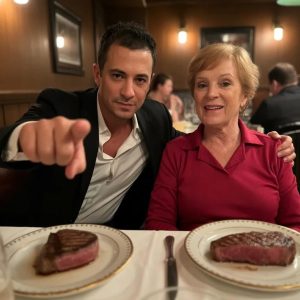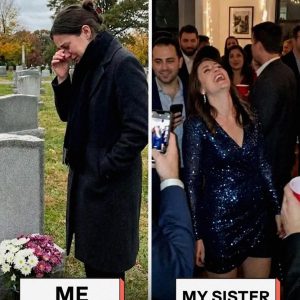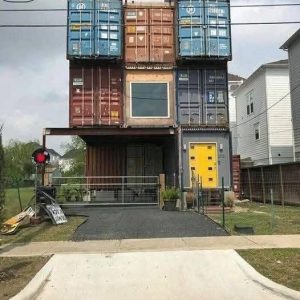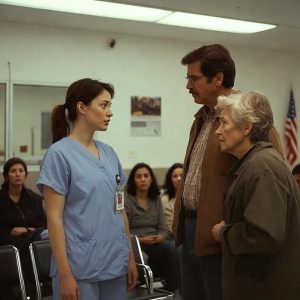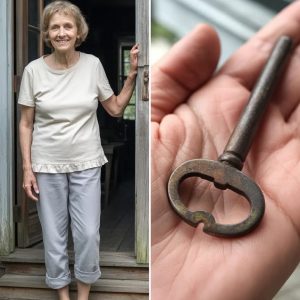I wasn’t supposed to be home until Friday.
The calendar on our fridge still had my flights circled in blue, a little airplane doodled by Sonya’s hand. But the meetings wrapped early, and I thought it would be nice to be the one to surprise them for once—pick up flowers, grab Sonya’s favorite chocolate milk, ring the doorbell and watch my wife’s eyes light up. I drove the whole way smiling at that picture.
The house was quiet when I walked in. Afternoon light slanted across the hallway, dust floating in the beam like slow rain. Sonya’s backpack lay by the door, her little sneakers lined up next to it. “Hey!” I called out, setting the milk on the counter. “I’m home early!”
No answer. I took the flowers with me down the hall, pushing our bedroom door with my shoulder because my hands were full.
The world shifted. It didn’t explode—it tilted, like a set piece knocked off its hinges. My wife. A man I’d met once at a work barbecue, shirtless and startled. Covers thrown. The flowers clicked against the doorframe and slid quietly to the floor.
Later, I wouldn’t remember if I shouted. I remember the man scrambling, a blur of belt and apologies, and the way my wife’s mouth moved without sound before words arrived. I remember the bedspread I had chosen with her, the framed photos on the dresser, Sonya’s crayon drawing taped to the mirror. I remember a bitter, stupid thought—so this is what a cliché looks like in your own house.
I slept on a hotel pillow that night, staring at the ceiling like it might offer captions. The decision came without drama, the way a body knows to pull back from a hot stove. I wanted a divorce.
What I didn’t know was what would happen to my daughter.
Sonya is five. She still pronounces spaghetti like a secret, still asks me to check under the bed for sharks. She has my eyes and her mother’s stubbornness and a way of seeing right through people. For years I took business trips, telling myself I was building something for us, that missing bedtime stories would add up to a safer future later. Now I could feel that math crumbling. I pictured weekends and alternating holidays, a suitcase packed with little dresses, me waving at a car pulling away.
Every lawyer I spoke to was careful with their words, but I heard the message: unless there’s abuse, courts lean toward mothers. I was a traveling parent. She had a network—teacher references, chatty mom friends, Instagram posts full of crafts and cupcakes. No matter the betrayal, she was still a “good mom” on paper.
I filed anyway. I couldn’t teach my daughter to fight for herself if I didn’t fight for her.
The hearings came faster than I expected. In the fluorescent quiet of the courthouse, my wife’s attorney built a narrative like a neat stack of boxes: stable mother, consistent routines, well-attended kindergarten, a father who is often away. Exhibit A: flight receipts. Exhibit B: smiling photos at school events. There was even a line about “emotional deprivation” caused by my absence that made me clench my jaw hard enough to hurt. When the other man’s name surfaced, it arrived wrapped in passive voice: “a period of mutual indiscretion.” As if it had blown in through a window.
My attorney countered with my schedule—how I’d reduced travel over the last year, how my company had agreed to a local role. He presented my messages with Sonya on video calls, the traditions we kept even at a distance: Tuesday joke night, Friday bedtime stories, the breakfast we made together every Saturday—eggs, badly, and pancakes shaped like continents. He talked about consistency in a different way.
Sitting there, I still felt the case sliding out from under me. The judge had the steadiness of someone who’s heard too many lives in tidy bullet points. He asked measured questions, gave fair looks. I braced for the decision I’d already rehearsed accepting.
Then he asked for Sonya.
They brought her in holding Bunny by the ear, her yellow dress blinking against the gray carpet. She looked smaller than she does at home, swallowed by the room’s seriousness. The judge leaned forward, hands folded, voice softened to the timber teachers use.
“Sonya,” he said, “who would you like to live with?”
The air thinned. I wanted to tell him not to do this to her, that we could be adults and spare her the weight. But he was careful—he already knew what he was asking. Sonya looked at me, then at her mother. Her lip tucked under her teeth the way it does when she’s doing a hard puzzle.
“I don’t want to be second place,” she whispered.
The words moved through the room like thunder does—first a low roll in your chest, then the crack. The judge didn’t flinch. “What do you mean, Sonya?”
She held Bunny to her sternum. “When Mommy’s friend comes over, she tells me to go play alone. Daddy… Daddy always has time for me. With him, I’m never second place.”
I saw my wife press a hand to her mouth. Her lawyer drew in a quick breath that sounded like a paper cut. The judge nodded once, slowly, like something had settled in him.
“Thank you,” he told Sonya. “That was very brave.”
They took her back out. Minutes later, after a short recess that felt like an hour, the decision came down clean and simple: full custody to me, visitation for her mother according to a schedule that respected Sonya’s routines. The judge spoke about stability, about trust. He didn’t condemn my wife, but he made clear what the court values: a child who knows where she stands in the room.
I carried Sonya out into the hallway, my face wet in a way I didn’t bother to hide. She put her small hands on either side of my cheeks, squishing my ridiculous nose, and smiled like a sunrise cracking the horizon. “Now I know I’m first place,” she said.
That night we ate pancakes for dinner. She wore my T-shirt as a nightgown and fell asleep on my chest in ten minutes flat. I lay awake longer, listening to the old house breathe, thinking about how quickly certainty can evaporate and how quickly something new can take its place.
The divorce finalized a few months later. We made a calendar with colored dots. Sonya has drawings on both our fridges now. I am strict about drop-offs being friendly, about not using Sonya as a messenger. On her mother’s days, I do not call ten times. On mine, I try to build a home she wants to run toward. Mornings are cereal negotiations and lost socks. Evenings are library books and soccer cones in the yard. Sometimes I still travel for work, but never overnight. My boss agreed to the compromise and I didn’t argue my way out of the gift.
On our first weekend after the ruling, Sonya and I packed a picnic and drove to the old park by the river. She brought chalk and told me to draw something “realistic.” I drew a lopsided cat. She drew a rocket with windows shaped like hearts. “Where’s it going?” I asked.
“To first place,” she said, as if it were a destination on a map. “We live there now.”
She says simple things like that and the complicated parts line up behind them.
There are hard moments. There are questions I can’t answer in a way that feels fair. When Sonya asks why adults make promises and then forget them, I say we shouldn’t, and when she asks if I still love Mommy, I say I love the part of Mommy that helped make you. I tell her families can change shape and still be families. When she asks about second place, I tell her there are no podiums in our house.
Sometimes, late at night, after she’s fallen asleep with Bunny over her face like a tent, I think about that first afternoon. About the tilt. About the way a life can be thrown into the air and—if you’re lucky, if you work at it—land upright again. I don’t feel triumphant. I feel responsible. Grateful. A little bit in awe of a judge who knew to ask a child the right question in the right way, and of a child who answered it with more clarity than most adults manage.
On her sixth birthday, we invited both sets of grandparents to the park. I baked a disastrous cake whose frosting leaned but did not fall. Her mother came for the first hour, gave Sonya a necklace and a kiss, and left with a wave that was complicated and kind. Sonya ran across the grass with her friends, a comet of yellow ribbon, shouting rules for a game she invented as she went. I stood by the table of juice boxes and watched her just exist—first place without needing to name it.
At bedtime she held my face again and said, “Thank you for the party.”
“Thank you for being you,” I said, which is a thing I swore I’d never say because it sounds like something from a greeting card, but it was the only true thing in the room.
Later, I taped her newest drawing to the fridge. It was a house with two doors, a big sun, and a stick figure holding a rabbit. Above it, in careful letters: HOME.
There are a thousand versions of how a marriage can end. Mine ended in the worst way and opened into the best work I will ever do. I wouldn’t wish the middle on anyone. But I would wish the ending: a little girl who knows she is never second place, a kitchen that smells like pancakes, a life that is smaller and also somehow more whole.
